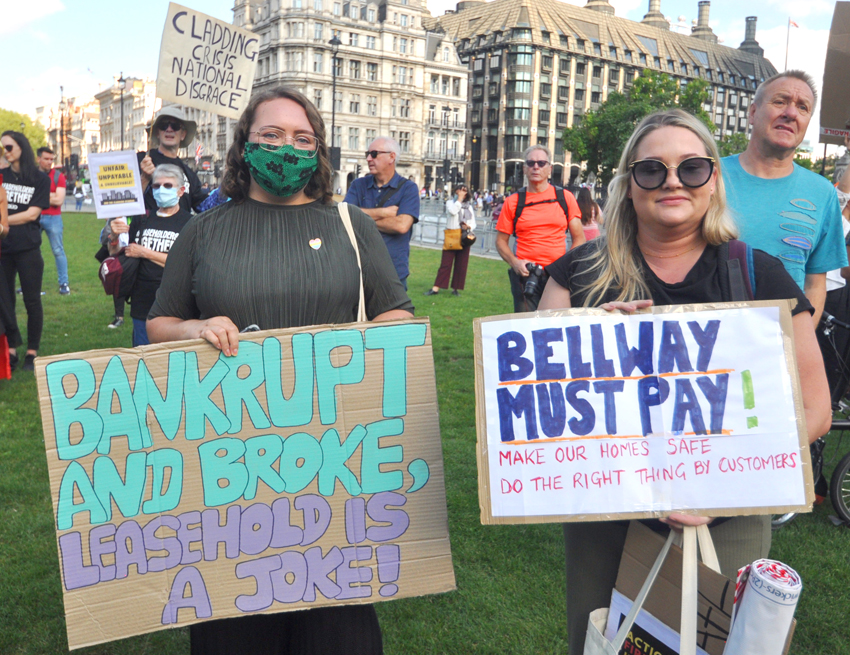THE GRENFELL community spoke out in furious anger yesterday that a building almost two and a half times taller then the Grenfell Tower is being granted planning permission despite it only having one fire escape staircase.
The planned skyscraper, which will be situated next to the Westfield shopping centre in Shepherds Bush, just a stone’s throw away from the Grenfell Tower will have up to 35 floors but only one firescape staircase.
Grenfell United, a group representing the survivors and bereaved, said: ‘After half a decade of campaigning for safer homes, it’s shocking to hear that a new tower block, a stone’s throw from Grenfell, rigged with a fire safety defect before it’s even been built, is being planned.’
The strategy in the event of a fire is for residents to ‘stay put’ on the basis that the building is designed to stop fires spreading from flat to flat.
But some safety experts have said it is ‘madness’ that single staircases are still allowed, not least after the Grenfell disaster where, once an evacuation was necessary, some residents were unable to escape through the smoke-logged staircase that was used by evacuees and firefighters, and the stay put policy was kept in place for too long, costing lives.
‘This is flying by the seat of our pants,’ said Arnold Tarling, an independent fire engineer, who said a single staircase only worked if smoke ventilation systems, firefighting lifts, door closers and other safety systems were rigorously maintained.
‘Commercial buildings have to have multiple staircases. You are better cared for in a commercial building than a residential one.’
Pressure is now growing for a change in the rules on staircases. Last week the developer of a 51-storey apartment tower close to Canary Wharf withdrew its application from a planning hearing amid alarm that it featured only one staircase.
Some fire experts want to bring the UK into line with dozens of other countries where two or more escape stairs are required on tall buildings.
Meanwhile nearly five years after the Grenfell Tower fire, 40% of buildings in England with the same type of cladding have not been made safe, new figures show. The flammable cladding panels have been blamed for the rapid spread of the 2017 London fire, which led to 72 deaths.
In all, 481 buildings have been identified with Grenfell-style ACM cladding and are unlikely to meet building regulations.
As of December 2021, 289 of those buildings have had work fully finished.
The government had set aside billions to remove dangerous cladding. Blocks in England above 18 metres tall with cladding defects qualify for the £5.1bn Building Safety Fund.
Cladding campaigners say it is taking too long to make homes safe, while leaseholders have told the BBC that accessing funding is a complex process.
Remediation work has been slow to begin and not all blocks are eligible for help. The information comes from government figures released yesterday.
The number is lower for private sector blocks. Fewer than half, 48%, have been finished and signed off as safe.
Greater Manchester and London have the biggest clusters of buildings with Grenfell-style ACM cladding: 268 in London, 72 in Manchester and 141 in the rest of England.
For other types of dangerous materials, known as non-ACM cladding, progress has been slower.
In all, 970 blocks have been approved for funding from more than 3,000 applications.
But so far, just 18 have been completed, amounting to less than 2%.
